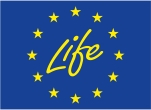EU governments brought 113 fossil fuel lobbyists to COP29, according to new research by the Kick Polluters Out Coalition. The lobbyists have entered the UN climate talks in Baku as part of the official delegations of the EU national governments including Greece, Italy, Sweden and Belgium.
The new analysis, supported by the Fossil Free Politics campaign, shows that Greece and Italy had the largest fossil fuel delegations among EU member states, bringing 24 and 22 lobbyists respectively, the vast majority from gas companies. This should be no surprise as they are the biggest buyers of Azerbaijan’s gas via the controversial Southern Gas Corridor (SGC) mega-pipeline, which the EU is pushing to expand. Both countries also brought in lobbyists from SOCAR, Azerbaijan’s national oil company and a major shareholder in the SGC. Additionally, Greece brought two lobbyists from the Trans Adriatic Pipeline, which is the last leg of the SGC.
Sweden brought 17 fossil fuel lobbyists, including senior staff from gas utility E.ON, and Belgium brought 13 fossil fuel lobbyists, including six from gas company Fluxys, who is also a shareholder in the Trans Adriatic Pipeline, with CEO Pascal de Buck joined by five other colleagues.
French President Macron decided not to attend COP29, but the same can’t be said about his country’s biggest oil and gas producer TotalEnergies. It had six lobbyists registered to attend, including CEO Patrick Pouyanné invited to the talks by hosts Azerbaijan. CEOs from Eni and BP were also invited by the Azerbaijani hosts.
Disturbingly, some European governments are even using COP29 in Baku to make fossil fuel deals. Italy for instance brought seven lobbyists from Italgas, which was the single biggest fossil fuel delegation brought by an EU member state. On the second day of COP29, 12 November, Italgas and host Azerbaijani SOCAR, signed a deal on a “strategic partnership… on gas distribution.”
“As a result of the flood of fossil fuel lobbyists they brought into COP29, European governments are using the talks in Baku to strike gas deals. How come they are more focused on helping the oil and gas industry than on keeping fossil fuels in the ground? We need a firewall around the UN and EU climate decision-making to protect it from the vested interests of the likes of Eni and TotalEnergies.”
said Nathan Stewart, Fossil Free Politics coordinator.
The European Commission did not bring any fossil fuel lobbyists this year, a big shift from last year when it brought lobbyists including senior executives from BP, Exxon and Eni. Since COP28, there has been a groundswell of pressure on EU Climate Commissioner Hoekstra to not bring fossil fuel lobbyists to the COP, culminating in the Commissioner hearings with Hoekstra, where the Commissioner announced his support for a conflict of interest policy at the UN talks.
“It’s time for Hoekstra to turn that talk into action, and make sure that when negotiations on big polluter presence at COP resume, the EU is on the side of people over polluters,”
added Stewart.
In terms of participants, this year’s COP is fifty percent smaller than last year’s talks in Dubai – but fossil fuel lobbyists make up an even larger share of total participants this year.

Friends of the Earth Europe gratefully acknowledges financial assistance from the European Commision (LIFE Programme). Views and opinions expressed are however those of the author(s) only and do not necessarily reflect those of the European Union or CINEA. Neither the European Union nor CINEA can be held responsible for them.
Related Content
We think you’d also like:

Fossil Free Politics
Politicians should make climate laws to protect people – not please the fossil fuel industry. We need to cut fossil fuel interests out of our politics, similar to existing restrictions on the tobacco industry.






